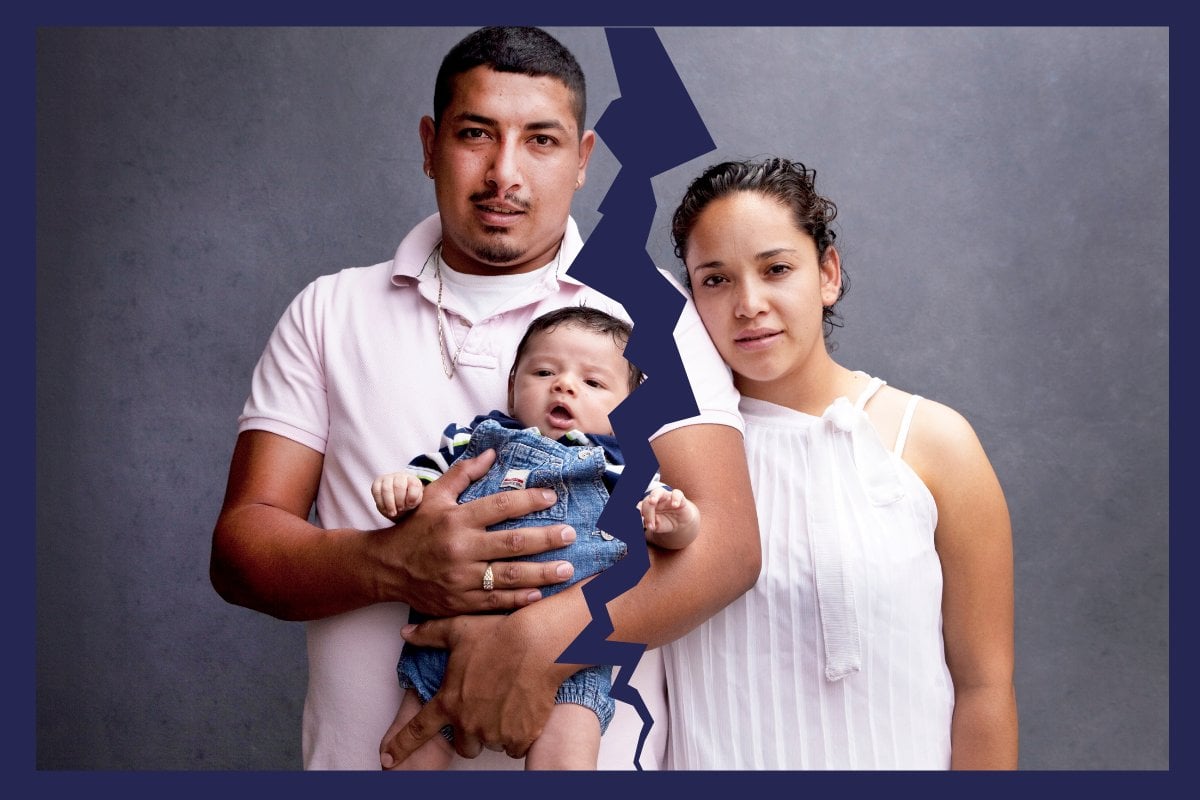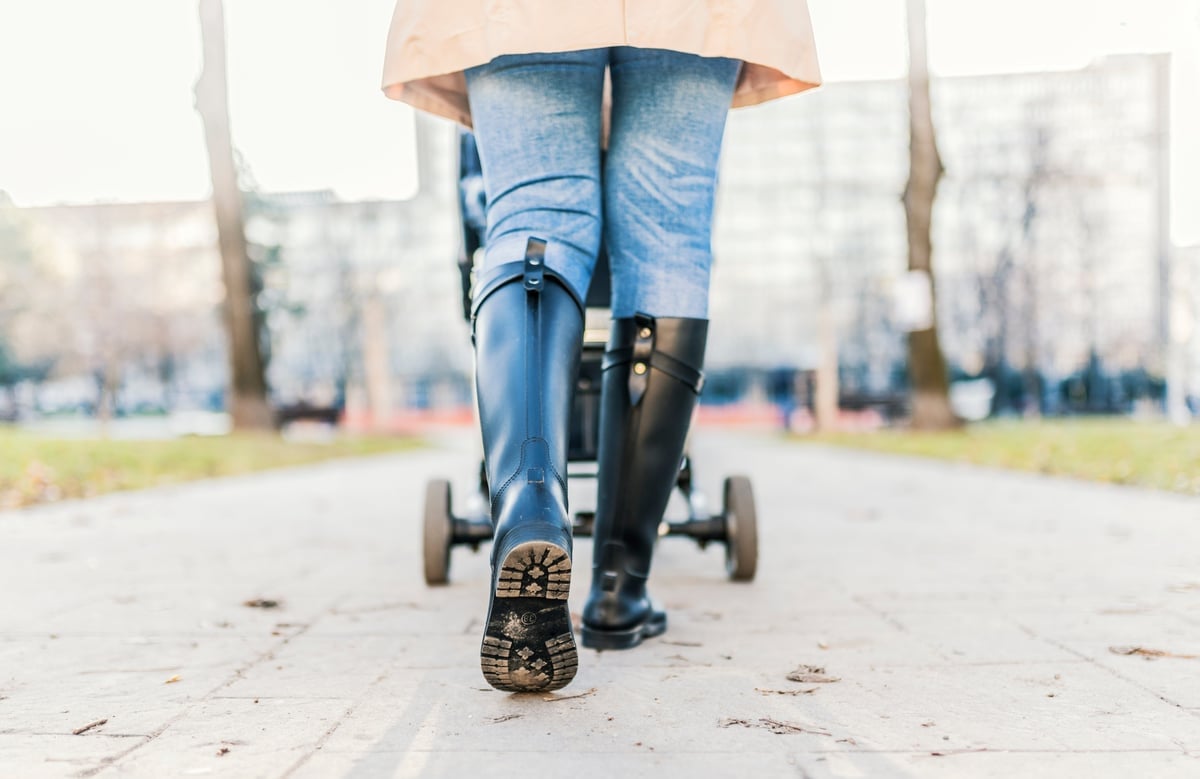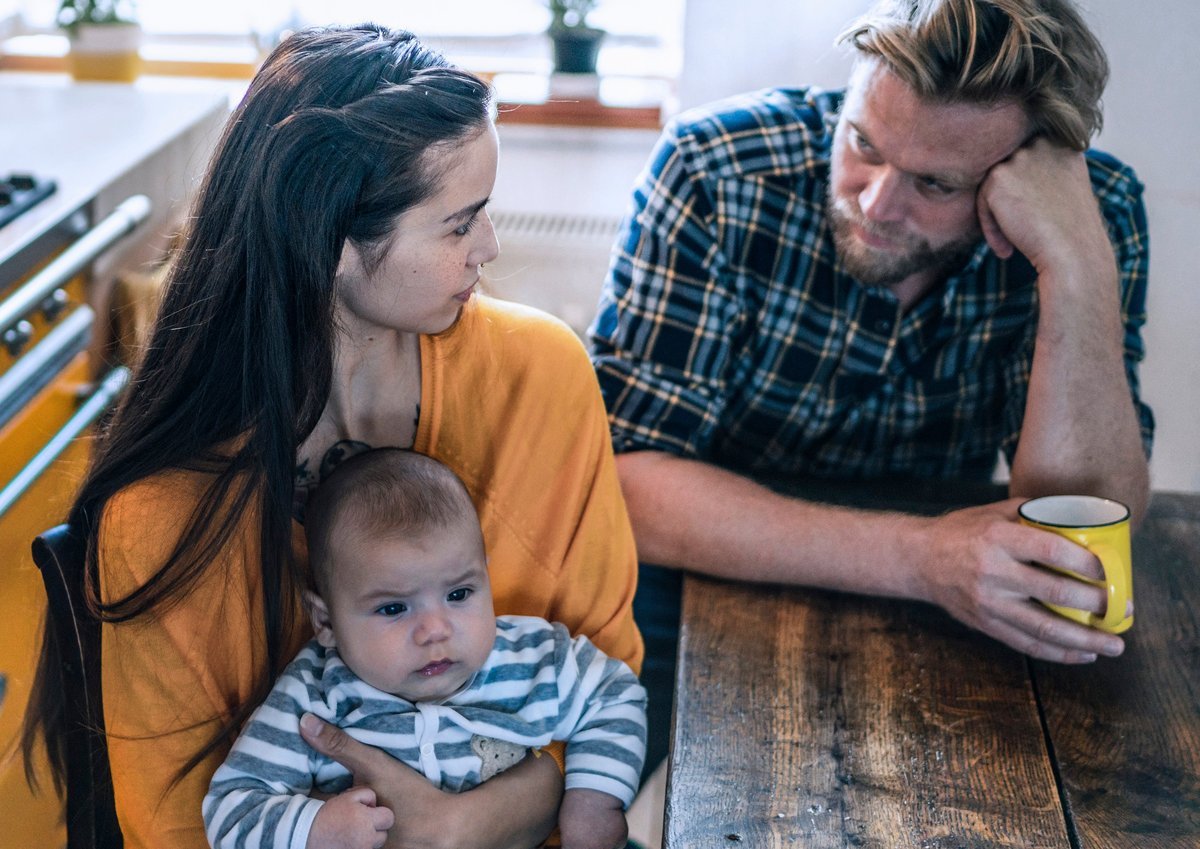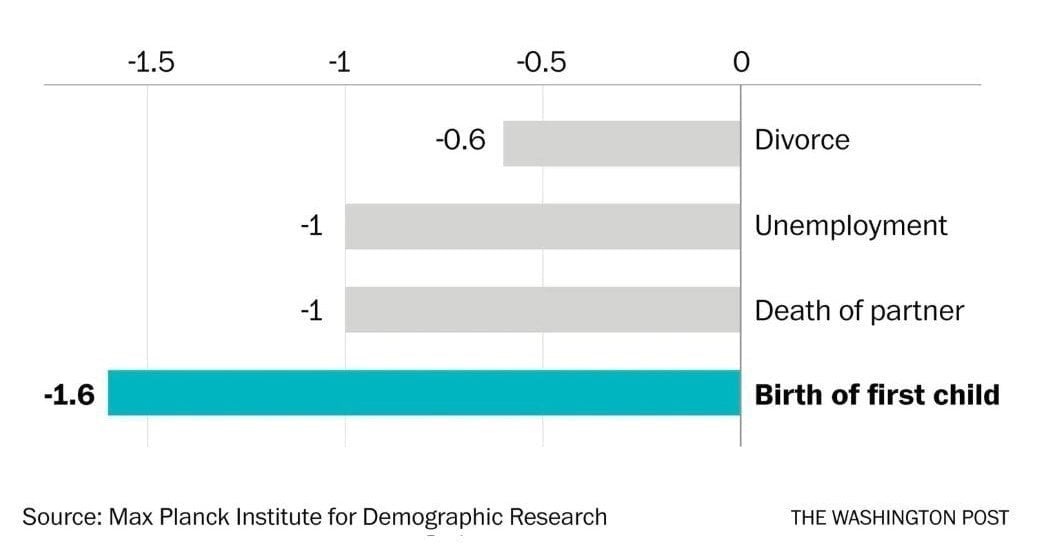
Heather had her first baby in May 2020, smack bang in the middle of a global health pandemic.
The first year of parenthood for any couple is tough, but suddenly Heather and Jason were navigating the world of newborn craziness with very minimal support - and no real opportunity to take a break from the small apartment they were forced to live, socialise, work and now parent from.
"It was certainly a challenge and definitely took a toll on our relationship. We found ourselves not really having much to talk about, given we were with one another 24/7. Intimacy gets neglected, and we have found ourselves bickering a lot more than usual," Heather told Mamamia.
"Oh, and I certainly found myself resenting him for being able to sleep through the night. It's really tested our communication and conflict resolution skills that's for sure."
Sidenote: Horoscopes as new mums. Post continues after video.
Pandemic or not, these pressure points are not new.
In 2019, a UK study found that a fifth of parents break up in the year after having a baby, citing a lack of communication, a dwindling sex life and not having time for each other as the primary drivers.







Top Comments